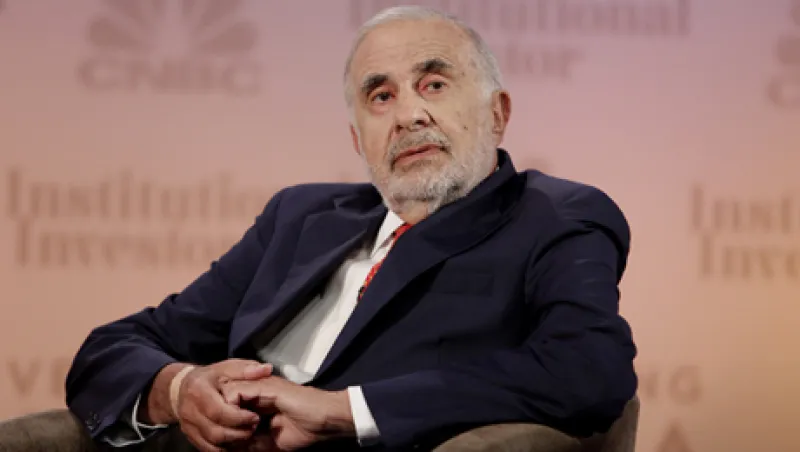
CNBC EVENTS -- Delivering Alpha -- Pictured: CNBC Institutional Invester Delivering Alpha conference keynote speaker Carl Icahn, Chairman, Icahn Enterprises, and CNBC's Scott Wapner on July 17, 2013 in New York. -- (Photo by: Heidi Gutman/CNBC)
CNBC/Heidi Gutman/CNBC


